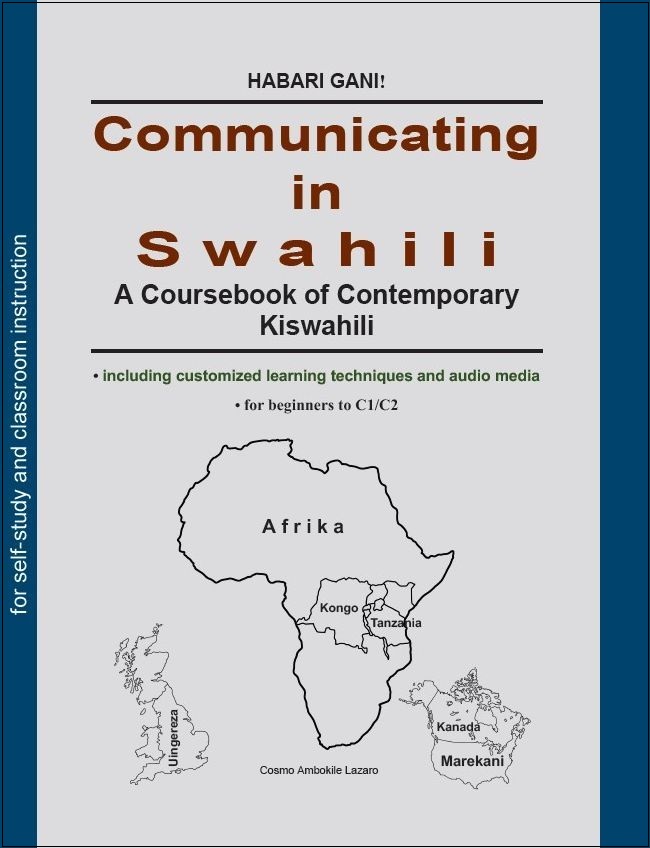kiswahili.net
TRAINING and COACHING
OUR SERVICES
TOOLS and RESOURCES
BOOKS ·· SHOPS
MISCELLANEOUS
Now, why should people require a book? After all there are many online platforms out there, offering
numerous tools/apps and promises? As you might already know, some of the reasons are:
1) Many learners aged e.g. 20 to 50 years, do say that they can learn more effectively using a book,
because they need to write down notes by hand on paper. Thus, digital/online media can only
supplement or complement a printed book. For the sake of the environment, there is space
for hand-written notes in this book. Thus you needn't squander any index cards etc.
Moreover, this platform does not use templates which cater for all sorts of languages from different
continents. What we are saying is that one size does not fit all. The content, resources and methodology
are tailor-made for one language only, namely Swahili aka Kiswahili.
2) Several studies (e.g. as of 2020) have confirmed that people learn better, if they write down notes
especially by hand instead of just clicking or typing.
3) It is a well-known fact, that the more senses you involve, the more effectively you can learn.
Copyrighted Material audio files [MP3] for the coursebook [p. = page in the coursebook]You can also download the recordings, subject to our copyright provisions. _____________________________________________________________________________________
|





